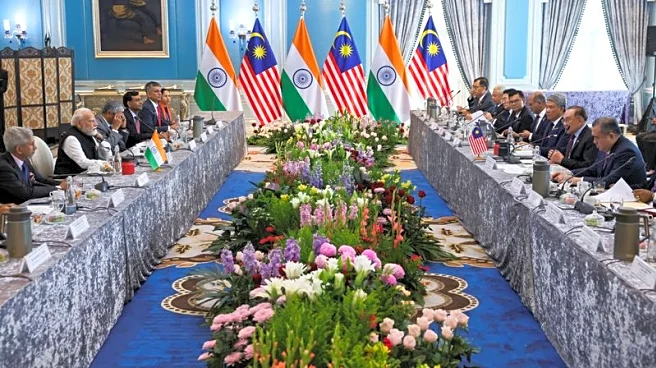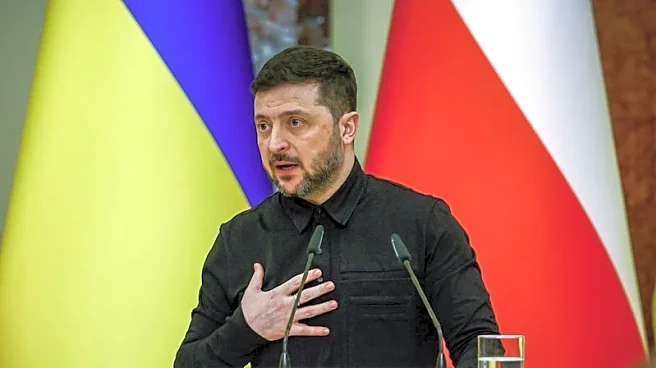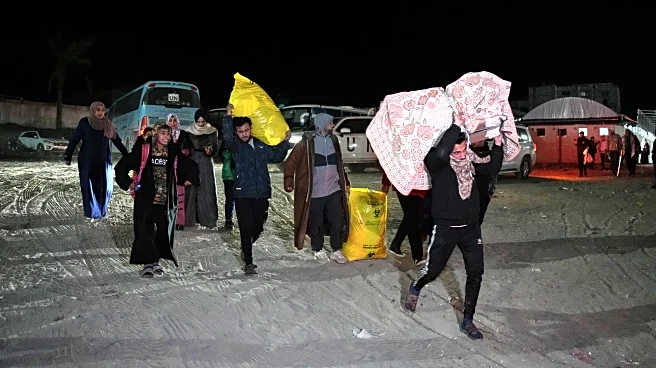What is the story about?
What's Happening?
The United Nations has included dementia in its latest political declaration, marking a significant step in global health policy. This declaration, presented at the U.N. General Assembly, aims to address mental health challenges and noncommunicable diseases, with a focus on conditions like cardiovascular disease, diabetes, and now, dementia. The inclusion of dementia is seen as a watershed moment by advocates, as it highlights the growing prevalence of the condition, especially in aging populations. Despite opposition from U.S. Health and Human Services Secretary Robert F. Kennedy Jr., the declaration is expected to be approved in October. The move is particularly significant for lower-income countries, where dementia awareness and infrastructure are lacking.
Why It's Important?
Dementia is increasingly recognized as a major health challenge, with its prevalence expected to rise as populations age. The inclusion of dementia in the U.N. declaration underscores the need for global attention and resources to address this issue. High-income countries may benefit from integrating dementia risk reduction strategies into existing health campaigns, while lower-income countries face challenges in providing adequate care and support. The declaration could lead to increased funding and policy initiatives aimed at improving dementia care worldwide, potentially reducing the stigma and isolation faced by those affected.
What's Next?
The declaration's approval in October could pave the way for countries to develop and implement dementia action plans. This may involve integrating dementia care into national health systems, increasing funding for research and support services, and launching public health campaigns to raise awareness. However, the implementation of these plans may take years, especially in countries with limited resources. Advocacy groups will likely continue to push for tangible actions to ensure the declaration leads to real-world improvements in dementia care.
Beyond the Headlines
The inclusion of dementia in the U.N. declaration highlights broader ethical and societal challenges. As populations age, the need for comprehensive care and support systems becomes more pressing. The declaration may prompt discussions on the role of governments in addressing dementia, the importance of reducing stigma, and the need for community-based support networks. Long-term, this could lead to shifts in how societies view and manage aging and mental health.
















